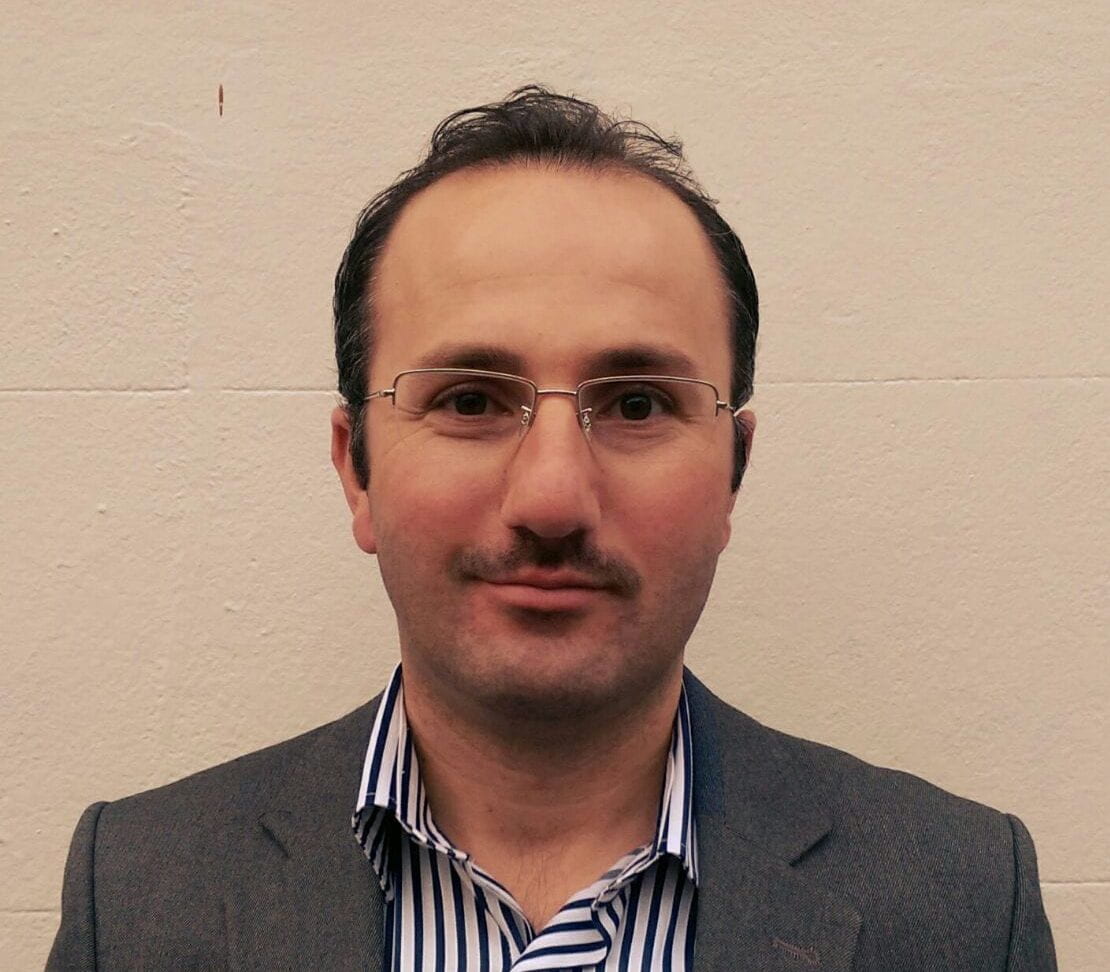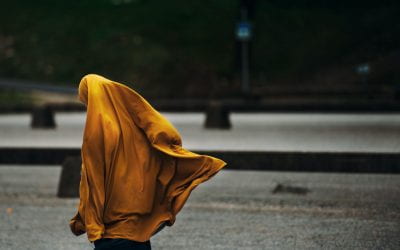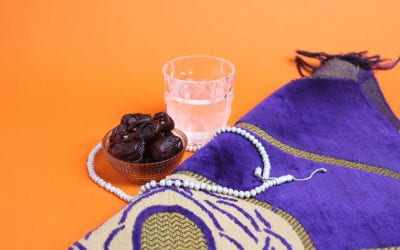Written by Salih Yucel
Latest Articles:
Theology, Health and Hygiene: How the Islamic Tradition Addresses the Threat of Pandemics
Last month, the World Health Organization officially declared COVID-19 to be a pandemic. Epidemics and similar pandemics are not uncommon in human history — just think of the Justinianic Plague (otherwise known as “the Black Death”). There is thus something to be learned from the attitudes and approaches to such diseases recommended in the religious traditions, and particularly in Islam.
Religious belief and practice cover many aspects of the life, such that believers will seek religious guidance in how to respond to mass threats to public health. In turn, religious guidance can motivate faith communities in the face of anxiety and panic and help to reduce the spread of the virus. Therefore, I want to analyse Islamic approaches to widespread disease in the light of some hadith reports (Prophetic traditions) included in major hadith collections, and the significance of cleanliness and protective medicine (hifz al-sihha) in the religious traditions.
I begin with this account from Sahih al-Bukhari’s Book of Medicine:

[The second caliph] ‘Umar bin Al-Khattab departed for Sham (Syria, the North) and when he reached Sargh, the commanders of the (Muslim) army, Abu’ Ubaida bin Al-Jarrah and his companions met him and told him that an epidemic (waba’) had broken out in Sham. ‘Umar said, “Call for me the early emigrants.” So ‘Umar called them, consulted them and informed them that an epidemic had broken out in Sham. Those people differed in their opinions … ‘Abdur-Rahman bin ‘Awf said, “I have some knowledge about this. I have heard Allah’s Messenger [pbuh] saying, ‘If you hear about it (an outbreak of plague) in a land, do not go to it; but if plague breaks out in a country where you are staying, do not run away from it’.” ‘Umar thanked Allah and returned to Medina.
The Prophet Muhammad’s (pbuh) statement in this hadith indicates quarantine and medical isolation for an epidemic. In this example, the leading companions of the Prophet preferred protection of health over any other public benefits.
In another report, the Prophet said: “One should run away from the leper as one runs away from a lion.” The Prophet (pbuh) also used to say, “O Allah, I seek refuge in you from leprosy, madness, elephantiasis, and evil diseases.” These Prophetic reports show how he paid special attention to such epidemics and viruses, and made some recommendations to prevent the spread of viruses. In addition to medical isolation, he would sometimes keep a certain distance from people with a contagious disease. For example, he accepted a leper’s pledge to loyalty by his words, and avoided physical contact. Furthermore, in order to prevent the spread of the disease to other people, “when the Prophet would sneeze, he would cover his face with his hand or with his garment, and muffle the sound with it.”
The Prophet also remarks that, “None (among the believers) remains patient in a land in which plague has broken out and considers that nothing will befall him except what Allah has ordained for him, but that Allah will grant him a reward similar to that of a martyr.” In this report, people are encouraged to remain patient and rely on God after taking all the necessary medical precautions. The reward of a person who suffers from plague and remains patient will be similar to that of a martyr. To be patient is “to stop ourselves from despairing and panicking, to stop our tongues from complaining, and to stop our hands from striking our faces and tearing our clothes at times of grief and stress.” To exhibit patience in the face of sudden dangers and difficulties is considered to be one of the kinds of patience commended in the Qur’an.
Every believer can have patience at unlawful things, but it is only the prophets can have patience in the face of natural calamities. For this reason, the Prophet said: “O God! I pray to you to grant me such firm faith as can make dangers and difficulties from you easy on me.” It is understood from this that firm faith is linked with patience. As Bediüzzaman Said Nursî says:
Those who attain true belief, in proportion to their belief’s strength, can be relieved of the pressures of events. Relying on God, they travel safely through the mountainous waves of events in the ship of life. Having entrusted their burdens to the Absolutely Powerful One’s Hand of Power, they voyage through the world comfortably until their last day.
Moreover, as Fakhr al-Din Razi argued, when humans experience a severe calamity and disaster and think it is beyond human power and nobody can help them, it is as if they are in their natural disposition (fitrah) and they become submissive to the One who can save them from it.
In addition, afflictions and misfortunes are testing times for humans, and their actions during such times are of particular importance. In the Qur’an, God states that: “We shall certainly test you with fear and hunger, and loss of property, lives, and crops. But [Prophet], give good news to those who are steadfast, those who say, when afflicted with a calamity, ‘We belong to God and to Him we shall return’.” (2:155-6). If this worldly realm is the field of testing, then sicknesses and misfortunes will be a part of this testing. If humans are steadfast and patient, they will succeed in this test. Also, such testing times and tribulations are a call for humans to reflect on themselves, life and its meaning, their connection with the world, and for prayer for humans and help each other. Such misfortunes should be signs and lessons for believers as there is a wisdom and purpose in God’s creation.
In another report, the Prophet (pbuh) said, “He (a Muslim) who dies of an abdominal disease is a martyr, and he who dies of plague is a martyr.” More than 50,000 people have already died globally due to COVID-19. We hope God will grant those innocent people a reward from the treasury of his Divine mercy and a sort of martyrdom for them in return for the tribulations they suffered. Some Muslim scholars like Imam Ghazzali (d. 1111) and Said Nursî (d. 1960) approached certain religious concepts such as belief and martyrdom inclusively. So, after the deaths of so many innocent persons during the First World War, Said Nursî said that “in return for the tribulations they suffered due to that worldly disaster, they have such a reward from the treasury of Divine mercy that if the veil of the Unseen were to open, a great manifestation of mercy would be apparent in relation to them and they would declare, ‘O Lord, thanks be to You! All praise belongs to God’.” He held that those innocent people who died in such circumstances “were martyrs of a sort, their reward would be great and save them from Hell.”
The Maintenance of Health in the Religious Traditions
In general, religions deal with human health and medicine. Rulings and principles with regard to human health and hygiene (hifz al-sihha) are contained in the Bible and major Jewish sources. For example, the following verses describe how to act against a plague occurred after a war (Numbers 31:16-24):
The plague came among the congregation of the Lord. Camp outside the camp seven days; whoever of you has killed any person or touched a corpse, purify yourselves and your captives on the third and on the seventh day. You shall purify every garment, every article of skin, everything made of goats’ hair, and every article of wood. Eleazar the priest said to the troops who had gone to battle: “This is the statute of the law that the Lord has commanded Moses: gold, silver, bronze, iron, tin, and lead — everything that can withstand fire, shall be passed through fire, and it shall be clean. Nevertheless it shall also be purified with the water for purification; and whatever cannot withstand fire, shall be passed through the water. You must wash your clothes on the seventh day, and you shall be clean; afterward you may come into the camp.”
Jewish religious texts explicitly promote mental and physical health. Ben Sira (Ecclesiasticus in the Jerusalem Bible) states, “Better a poor man healthy and fit than a rich man tormented in body” (30:14), and condemns gluttony and drunkenness. The Talmud encourages bathing and washing after meals, bodily cleanliness being inseparable from spiritual purity. The Mishneh Torah and the Shulhan Arukh have entire chapters on diet, exercise, rest and sexual temperance, through which they elevate practical hygienic advice into religious obligation. Another example is the Tohoroth (cleanliness) volume in the Soncino Talmud, which discusses special circumstances of women, cleaning utensils and house, and body and hand hygiene. Also, Mûsâ b. Maymûn (or Maimonides, d. 1204) dealt with hygiene (hifz al-sihha) in his book Maqāla fî tadbîri’s-sıhha. He considers hygiene as the most important part of the medicine.
Cleanliness is highlighted in Islam’s holy book, the Qur’an, in various verses. One of the earliest revelations to Prophet Muhammad (pbuh) was “clean your garments” (74:4). God loves those who keep themselves clean (2:222). Moreover, ablution is made obligatory upon believers for five daily prayers and major bath (ghusl) after a sexual intercourse (5:6). In addition, many Prophetic traditions or hadiths discuss various aspects of cleanliness and hygiene. Many hadith collections start with a chapter, titled “The Book on Purification.” In one hadith, the Prophet states that, “Cleanliness is half of faith.” Personal hygiene and body cleanliness, such as cutting the nails, is considered a natural disposition of human beings.
The Prophet also put emphasis on dental health and hygiene, saying: “But for my fear that it would be hard for my followers, I would have ordered them to clean their teeth with siwak [a small stick used for cleaning and polishing the teeth] on every performance of ablution.” Cleaning houses, streets and environments are also highlighted in some hadiths. There are many other hadiths that deal with hygiene (hifz al-sihha). Consider the following:
- “If a dog drinks from the utensil of anyone of you it is essential to wash it seven times”;
- “When anyone amongst you wakes up from sleep at night, he should not put his hand in the utensil until he has washed his hand three times …”;
- “The Apostle of God forbade drinking from the broken place (of a cup) and blowing into a drink.”
Islamic medicine developed further through many translations from the East and West in the Abbasid Period. Muslim and non-Muslim physicians combined early Indian and Greek medicine and systemised it further. Some works during this period are devoted to hygiene (hifz al-sihha), while the maintenance of health is included in general medical books as well. For example, Ibn Sīnā (or Avicenna; d. 1037) discussed hygiene in his Canon of Medicine (Al-Qānûn fi’t-tıb). In his system of medicine, medical practice was combined with physical and psychological factors, drugs and diets — or “holistic” medicine.
Ibn Rushd, known in the Latin West as Averroes, also produced his medical encyclopaedia entitled Kitab al-Kulliyat fi-l Tibb, or Book of the Generalities in Medicine. He aimed to collect the ideas already presented by Greek authors like Aristotle, Hippocrates and Galen, and also by the Muslim scholars such as al-Razi and Ibn Sīnā. One part of the book analyses hygiene (hifz al-sihha) as well.
While, it is clear, the major religious traditions give special attention to human health and hygiene, for people of faith afflictions and misfortunes are also testing times — and such testing times and tribulations are a call for contemplation. These misfortunes are considered as signs and lessons. Believers must remain patient in the face of calamities, rely on God and fully becoming aware that God is in full control of their affairs.
Let me conclude with the pertinent instructions of Sabuncuoğlu Şerefeddin, a fifteenth century physician and pharmacologist of 15th century, on how to respond to epidemics:
Wash your hands well.
Don’t get into the crowd.
Greet from a distance.
Eat well, drink well.
If you are sick, go to bed
Don’t go outside.
Cover your face outside.
Any object does not touch you by God’s permission.
*This article was originally published by Dr Hakan Çoruh in The ABC Religion and Ethics on April 6, 2020. To view the original article, click here.
About the Author
Dr Hakan Ҫoruh is a lecturer of Islamic Studies at the Centre for Islamic Studies and Civilisation, Charles Sturt University. Hakan’s main field is Qur’anic exegesis (tafsīr), focusing on Qur’anic studies, classical exegesis, and contemporary approaches to the Qur’an and Islam.
Click here for more detail.






0 Comments